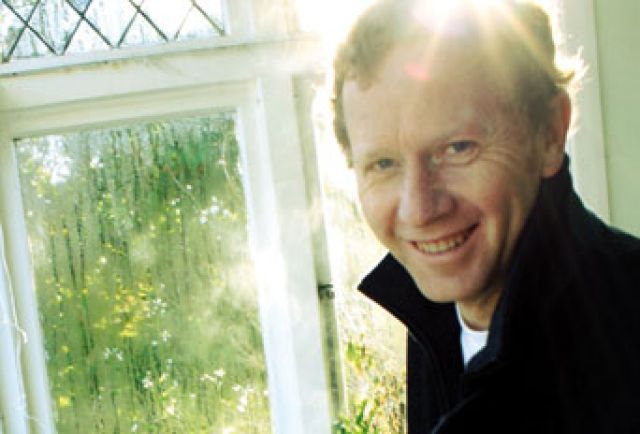
Green capitalism is on a roll at the moment. On July 8, a group of New Zealand business leaders launched their “Pure Advantage” campaign with full-page ads in the daily papers headed: “Even if you don’t believe in climate change, there’s money to be made doing something about it.”
This was followed by the classic: “There’s money in being green and we need to start turning Green Growth into wealth.”
That says it all, really.
One of the founders of Pure Advantage, 42 Below’s Geoff Ross, quoted a 2011 United Nations report which found that looking ahead the global economy will need $1.9 trillion a year for investment in green technologies and, as Ross says, “If that’s not a market opportunity, I don’t know what is.”
The launch of Pure Advantage follows the release on July 6 of a discussion paper from the New Zealand government’s Green Growth Advisory Group (GGAG), and I’m sure the timing was by no means coincidental.
I had no idea the GGAG (what an acronym) existed until now, but chaired by Phil O’Reilly, CEO of Business New Zealand, and with members including Guy Salmon, long known as a champion of the environmental right, it is no wonder these people are all singing from the same songsheet.
In fact, as Brian Fallow reported on July 8, the GGAG was itself created as a result of lobbying by some of the same businesspeople involved in Pure Advantage.
I don’t think there’s any deep conspiracy going on here, just very effective planning and implementation by businesspeople savvy enough to know that to maximise business growth and profit-taking in the age of climate change and resource depletion, green growth is their best chance for survival and success.
They’ve got plenty of political friends to back them up too, not only in government, but also in Greenpeace and the ACT, Labour and the Green parties, who all showered praise on Pure Advantage.
Greens co-leader Russel Norman said on July 7 that he looks forward to the Pure Advantage group “being an important ally for the Green Party’s vision of smart green prosperity”.
Greenpeace climate campaigner Nathan Argent said: “We will all do well if we act on what Pure Advantage is telling us.”
I realise that by now some readers will be cheering them all on, and wondering why on earth a former Green Party type such as myself is sounding even slightly dubious about this course of events.
My fundamental issue with economic and business growth as the answer to the planet’s problems is that this growth is itself the source of the ecological crisis.
Big business is driven by the imperative to maximise profits for its shareholders, which means continually pushing for more — more resource extraction, higher margins from those whose labour it uses and more pollution, all often just shifted from one part of the world to another.

No amount of “greening” of the nature of this growth takes away from the fundamental fact that this planet cannot sustain infinite growth.
For a detailed summary of why market solutions won’t solve the problems of climate change and resource depletion, and on why there are natural limits to the greening of any economy, the 2011 paper, “Green capitalism: the god that failed” by Richard Smith, is one of the best I have ever read.
Smith is lucidly clear-eyed in rejecting the notion that the Earth can be saved “for fun and profit”, making it very clear that “we can’t shop our way to sustainability” and that the solution lies in working towards “collective democratic control over the economy to prioritise the needs of society and the environment”, alongside effective national and international economic planning.
I can understand why Smith’s unabashedly ecosocialist approach is not a popular one, even among most environmentalists and Green Party members.
It is not easy challenging the very fundamentals of the economic system in which we live, working for a society in which everyone gets a fair deal, and in which we will all work together to nurture rather than destroy the natural world on which we depend for survival.
Yet someone has to do that work, and it is now quite clear that it won’t be our local Green Party leading the way.
On July 11, Phil Goff became the first Labour Party leader since the Green Party entered parliament in its own right in 1999 to openly offer the Green co-leaders seats around a Labour government cabinet table.
A few weeks ago, the Green Party shifted its political positioning to make it clear that in the right circumstances it would consider entering a confidence and supply agreement with the ruling conservative National Party.
And last week we saw its leadership lauding Pure Advantage.
The Greens are doing well out of all this, riding high in the polls, and as Dr Bryce Edwards said on Radio New Zealand on July 12, they are increasingly being seen as “responsible, more moderate, and centrist”.
I predict a Green Party election campaign focused on the concept of “prosperity for all”, aimed at winning over even more of the blue-green voters they happily share with both major parties.
Those of us who want a different kind of future — and who aren’t afraid of challenging the root causes of climate change and poverty — will be looking elsewhere come polling day.
[Sue Bradford is a long-term community activist on welfare, jobs and poverty issues, and a former member of parliament for the NZ Green Party from 1999-2009. Now a member of the Mana Party, she will speak at the World at a Crossroads II: Climate change social change conference, in Melbourne, Australia, September 30-October 3. Article reprinted from http://pundit.co.nz/ ]